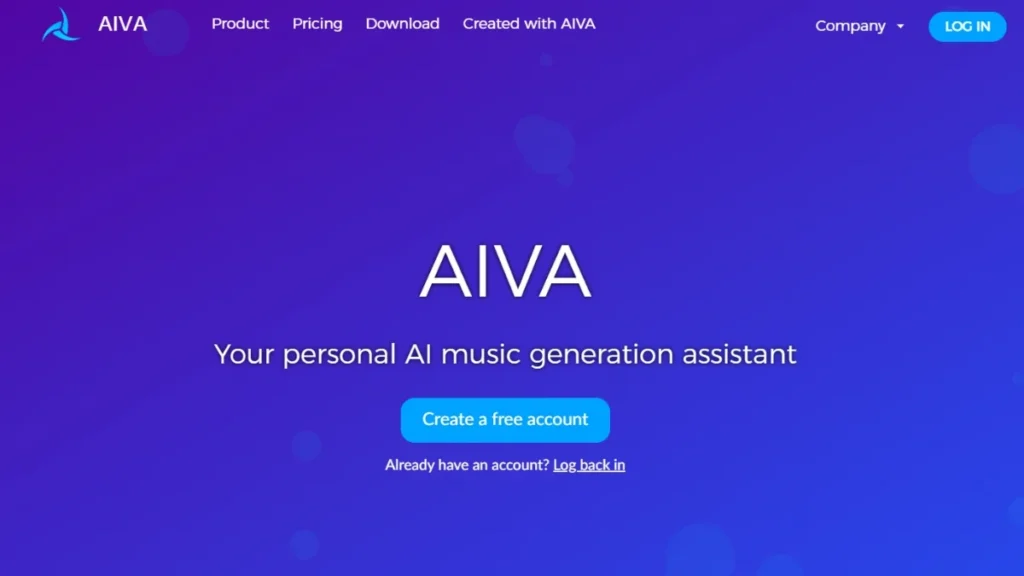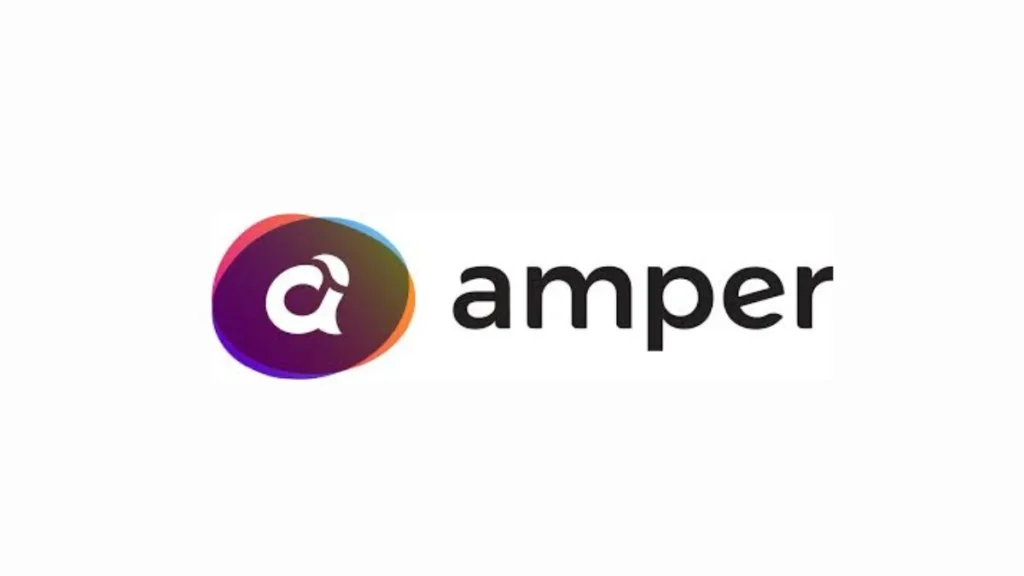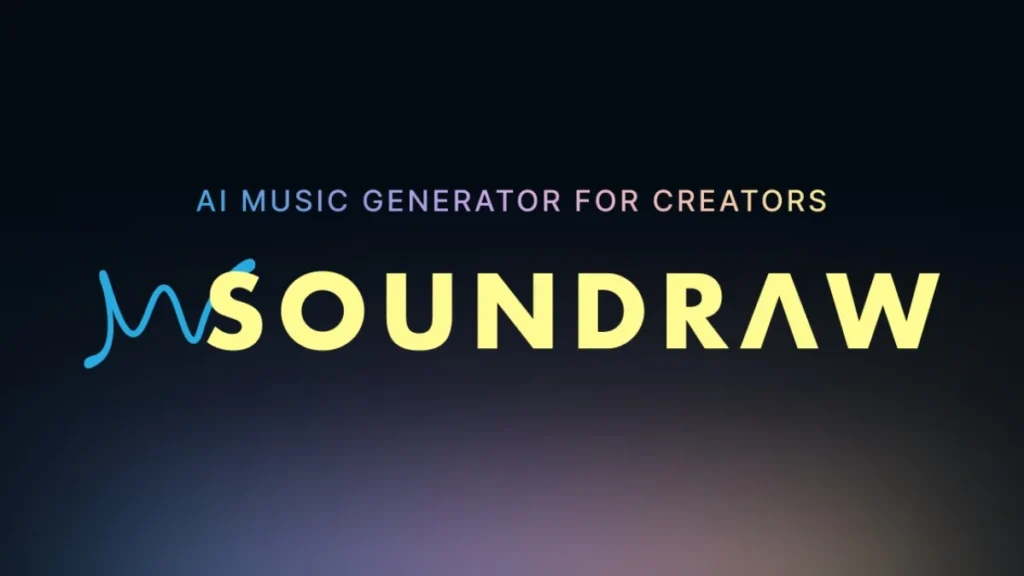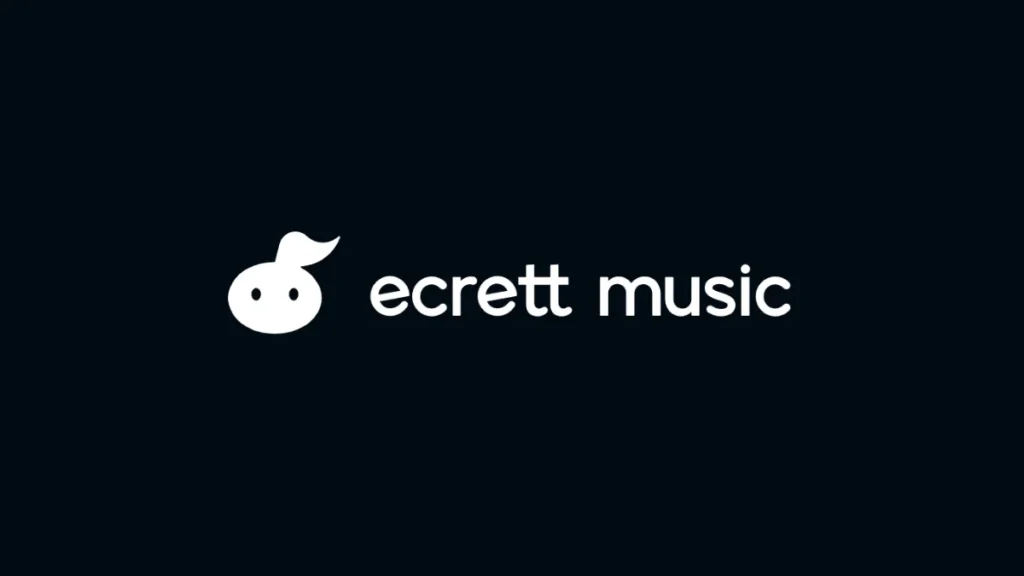AI Music Tools : The music industry previously operated solely from creativity and talent although technology today holds equal musical influence. Artificial intelligence’s rise has enabled musicians as well as producers and creators to invent revolutionary methods to compose and remix and produce music tracks that were previously unimaginable. Music creators at all experience levels discover that AI technology assists them to discover new musical concepts and enhance their production speed and enables those without musical training to develop professional musical compositions. We will explore the top AI music tools which present the opportunity to change the way we make and enjoy music in the present.
1. AIVA – Compose Emotional Soundtracks with AI

Among all AI musical composition tools AIVA stands as the most popular and renowned service. AIVA began creating music for classical movies and cinema but it expanded to support production of background music and emotional soundtracks and instrumental music across different musical styles.
Content creators and musicians access AIVA for generating original musical compositions through their selection of mood or genre or style specifications. A quick insertion of requested musical specifications into the system enables AI to produce scores and audio files within short minutes. AIVA has gained significant popularity within the film and video game sector because it enables fast music creation free from expensive composer arrangements. The feature that enables the export of MIDI files when needed for additional modifications makes this tool an exceptional tool for composers who need creative starting points.
2. Amper Music – Instant Music Creation for Everyone

It operates through the cloud as an AI music composer which remains easy to use regardless of user experience. The application works without requiring any expertise in both music theory and production software. Users simply need to select their desired mood together with style and track duration for Amper to generate free copyright music within seconds.
The artificial intelligence engine of Amper adjusts instantly to your current decisions so you can modify instrument sounds while adjusting tempo and intensity levels. The tool matches perfectly with content creators who create YouTube videos or podcasts or work in film production or market consultation because users gain professional music pieces without compulsory licensing or time-consuming creation steps. The platform serves as the standard background sound choice for both indie content creators and independent video and presentation makers.
3. Soundraw – AI Music Tool for Creators

It functions as an AI music generator platform that focuses on delivering original royalty-free compositions suitable for content creators who seek fast musical solutions. Users can easily produce professional music through Soundraw by picking a theme and genre and mood and track length before receiving a ready-to-use musical output.
The key distinction of Soundraw emerges from its ability to allow users to change generated music tracks. The AI-generated tracks allow users to modify specific sections including intro, chorus and outro so they can better align the music with their production content. Soundraw delivers ideal results for video editors who work with vloggers and makers of ads because it swiftly produces music that follows their scenes or content themes. Through its friendly licensing system creators can use their generated tracks without limits on social media platforms.
4. Ecrett Music – Effortless Music Creation for Videos

Through its AI system, it generates personalized musical tracks that match videos across different storytelling genres. You can create unique soundtracks for your video by selecting first the scene category followed by the mood and completing it by choosing the genre. Then Ecrett will generate the music automatically.
The music library at this platform gets updated frequently with each track being 100% royalty-free which eliminates potential copyright issues when using your music on YouTube and Instagram platforms. Ecrett brings great value to video creators who need high-quality music without the resources to create it themselves.
5. Users can generate and distribute songs immediately through Boomy
Using Boomy allows users to design their music quickly while the AI tool directly sends tracks to Spotify and Apple Music distribution platforms. The process consists of choosing between Lo-fi or EDM or Rap music styles to produce a song which you can modify before adding vocals or sound effects.
The distribution feature of Boomy enables users to release commercial music versions after satisfying the track and provides royalty payment options. Music creators at all levels can create professional-quality tracks through Boomy without spending much on studios and avoid using complicated software.
6. Loudly – AI-Powered Beat and Track Generator
Loudly functions as an AI platform for music generation through its real-time AI processing of a broad sample collection. Through Loudly users can select loops for remix while they control tempo levels and distinct emotions to create personalised musical tracks suitable for personal or commercial application.
The tool enables users to input existing tracks into the Remix AI function which produces fresh musical compositions. Loudly wins the admiration of DJs, producers and content creators because it provides them with diverse control options and versatility. Users can export their multitrack files which allows Digital Audio Workstation professionals to gain increased flexibility when using software such as Ableton and Logic Pro.
7. MuseNet by OpenAI – Complex AI Compositions
MuseNet as an AI artificial intelligence program from OpenAI produces 4-minute musical pieces featuring 10 different instruments across various styles from classical through jazz to pop. The technology demonstrates its ability to merge musical styles between Mozart and The Beatles.
The experimental MuseNet demonstrates how deep learning technology can generate music despite not being operational with a commercial interface at this time. The tool works best for both musical researchers and musicians who want to use AI inspiration to create new musical combinations along with finding help with complex compositions.
8. Jukebox by OpenAI – Raw Audio Generation
Jukebox produces complete audio output including singing voices and spoken words contrary to other MIDI and symbolic music tools. Modern advanced AI music tools like this system can reproduce different musical styles and genres together with generating new lyrics to become one of today’s most groundbreaking but complex technology.
Pulling from research development rather than commercial availability Jukebox delivers synthetically generated pop music through voice reproductions which mimic human natural speech. AI musicians and technological scientists find Jukebox invaluable because it lets them explore the frontier of AI-generated music ability.
9. Melodrive – Ai Music tool for Games and VR
Interactive video games and augmented reality headsets along with other digital environments use Melodrive as their adaptable AI-based musical system. The system generates songs without stop that continuously adjust to feedback from the user environment or the user’s actions.
Game developers as well as VR creators can easily integrate the seamless immersive audio solution of Melodrive to deliver music without requirement of repeated soundtrack cycles. Real-time music composition runs through a control mechanism that adjusts tempo and musical volume as well as genre according to gameplay activity to boost both narrative engagement and world immersiveness.
10. Alysia – AI Music Tools for Lyricists and Composers
The platform known as Alysia helps songwriters and inexperienced musicians by creating potential melodies together with chord sequences and complete musical pieces. This tool examines lyrics after which it develops musical concepts which harmonize with the narrative and adhere to the poem’s rhythm pattern.
Music enthusiasts along with writers and singers benefit strongly from this artificial intelligence program since they generate musical concepts yet struggle to compose appropriate musical scores. Alysia interfaces as a digital team member who both listens to creative ideas and provides meaningful additions to a musical project.
Conclusion
Musicians obtain greater capabilities through AI technology not because it replaces them but because it provides them with new tools. AI tools enable faster music composition while fueling creative inspiration to boost productivity levels for scores, remix work, video ambience beats and music album production without instrumental accompaniment.
Amper and Soundraw together with Boomy offer users immediate track creations but professional creators benefit from highly advanced systems like OpenAI’s MuseNet and Jukebox. People from all backgrounds can use few simple clicks on their computers to create music and distribute their music independent of prior experience.
Music creation of the future will combine human musical contributions with machine assist. This ongoing tool development will create unlimited prospects for innovation that combines sound technologies and storytelling techniques with individual self-expression.

